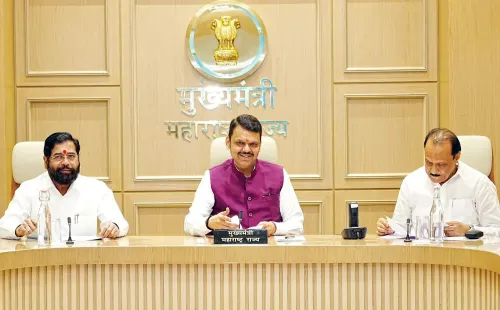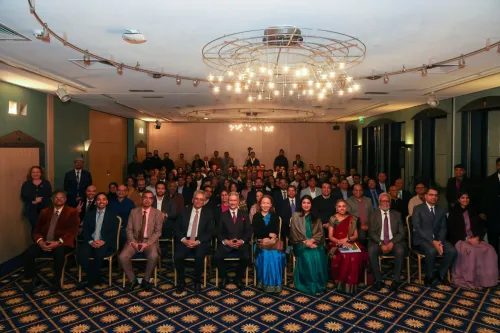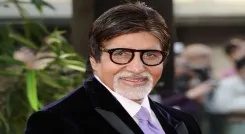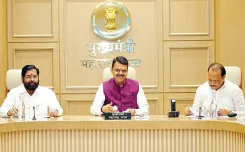Supreme Court Suggests Transferring Kerala Gold Smuggling Trial to Karnataka
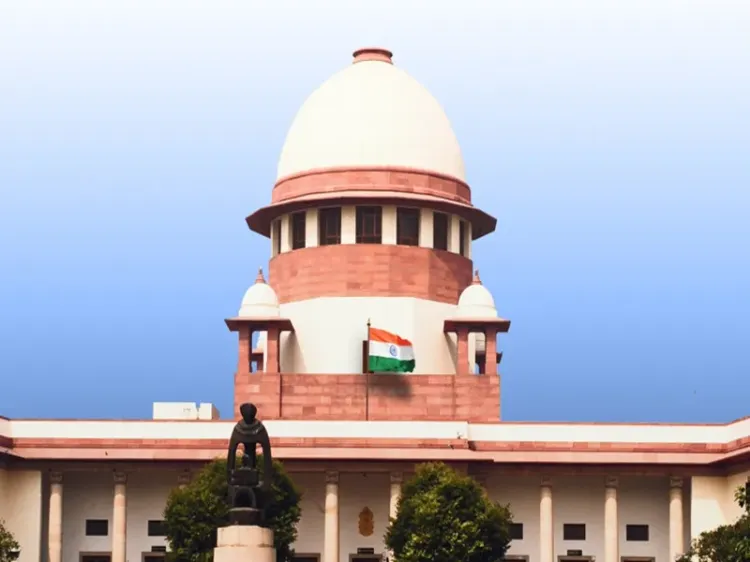
Synopsis
Key Takeaways
- The Supreme Court is considering transferring the Kerala gold smuggling trial to Karnataka.
- Serious allegations are involved, prompting the ED's request for transfer.
- The case has significant political implications for the Pinarayi Vijayan government.
- Key figures involved have been arrested and released on bail.
- The investigation has faced challenges from both the ED and Kerala Police.
New Delhi/Thiruvananthapuram, March 20 (NationPress) The Kerala gold smuggling case that stirred the Pinarayi Vijayan administration in 2020 has taken a significant turn as the Supreme Court verbally indicated on Thursday that due to the serious nature of the allegations, the Enforcement Directorate (ED)'s request to relocate the trial from Kerala should not face opposition.
This remark came while a bench of Justices M.M. Sundresh and Rajesh Bindal reviewed the transfer petition submitted by the ED in 2022, which sought to move the trial of the Prevention of Money Laundering Act (PMLA) case currently before the Special PMLA Court in Ernakulam to a Special Court for PMLA cases located in Karnataka.
Justice Sundresh stated, “The allegations are serious, and why should the ED not pursue the transfer?” This was in response to the Kerala government’s request for a delay in the hearing, as senior advocate Kapil Sibal, representing the state, was engaged in another court.
When senior advocate Jayant Muthuraj, representing some defendants, mentioned that notification must be sent to the additional accused included in the case through the supplementary complaint, Justice Sundresh remarked, “In fairness, you should not oppose this (transfer petition).”
However, when Sibal appeared before the court, he opposed the transfer, arguing that since the investigation has concluded and charges have been filed, there is no necessity to shift the case to Karnataka.
Sibal also noted that the ED initially sought a transfer to Karnataka but seemed to have changed its stance following the rise of a non-BJP government in Karnataka in 2023.
He posed the question, “Why was Karnataka necessary then, and why is it not required now?”
The bench advised advocate Kanu Agarwal, representing the ED, that notices must be issued to the newly added accused to prevent any future claims of prejudice.
Justice Sundresh observed, “Once you include other accused persons, they too need to be heard. Otherwise, it could lead to technical issues. Although we have a prima facie inclination to transfer, we need to ensure fairness.”
When Sibal mentioned, “Now they don’t want Karnataka,” Justice Sundresh replied, “We can consider transferring to Karnataka,” suggesting that the case could indeed be moved.
In response, Sibal stated, “I have no objection to Karnataka,” indicating a willingness to comply with the court's suggestions.
Justice Sundresh then instructed the ED's counsel that the case could be transferred to Karnataka if they were adhering to their original request.
Justice Sundresh added, “The senior counsel for the respondent (State of Kerala) is now saying he has no objection to your initial request to transfer to Karnataka. If you maintain this position…”
Sibal questioned the necessity for a transfer at all, given that all accused are based in Kerala and the investigation has concluded.
Advocate Krishna Raj, representing accused 1 & 2, expressed surprise at the state’s opposition to the transfer when his clients were not contesting it.
He also challenged Sibal's assertion that the investigation had concluded, noting that his client had submitted a statement under section 164 of the CrPC.
At the conclusion of the hearing, the court postponed the case by two weeks to allow the ED to include the newly added accused in the transfer petition.
The smuggling incident became public following the seizure of gold valued at Rs 14.82 crore by the Customs Commissionerate (Preventive) at the Trivandrum International Airport in July 2020. The gold was discovered in diplomatic baggage addressed to the consulate of the United Arab Emirates (UAE) in Thiruvananthapuram.
Among the primary accused was M. Sivasankar, a senior IAS officer and a former close aide to Chief Minister Pinarayi Vijayan. Sivasankar was arrested, jailed briefly, and later released on bail. He was subsequently reinstated and retired soon after. Following his retirement, he was re-arrested in a bribery case and later secured bail from the apex court on medical grounds.
Another accused, Swapna Suresh, who had a brief tenure at the UAE Consulate in the state capital and later worked on an IT project for the Kerala government, alleged that Vijayan, along with his family, was involved in gold smuggling after being released on bail.
Other accused include P.S. Sarith and Sandeep Nair, both closely associated with Swapna Suresh.
As both the ED and CBI reportedly put the Vijayan government in a precarious position, the Kerala Police filed an FIR against ED officials for alleged evidence fabrication and established a judicial commission to investigate the ED’s actions.
Nonetheless, the Kerala High Court dismissed both attempts.



